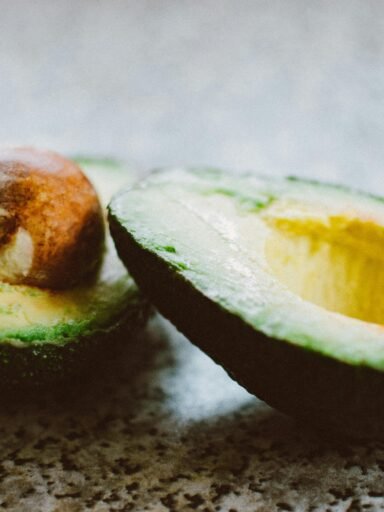The Nutritional Profile of Bananas
Bananas are not just a convenient snack; they are also packed with essential nutrients that contribute significantly to overall health and energy levels. One of the key components of bananas is potassium, an electrolyte that plays a critical role in maintaining fluid balance in the body and supporting muscle function. A medium-sized banana typically contains about 422 milligrams of potassium, which contributes to the recommended daily intake of 2,500 to 3,000 milligrams for adults. Adequate potassium intake helps reduce blood pressure and supports heart health.

In addition to potassium, bananas are an excellent source of vitamin C, an antioxidant that promotes immune function and protects cells from damage. A single banana provides approximately 10% of the daily recommended intake of vitamin C, which is 65 to 90 milligrams for adults. This vitamin aids in the absorption of iron from plant-based foods and helps in the maintenance of healthy skin.
Bananas are also rich in vitamin B6, which plays a vital role in metabolism and brain health. This water-soluble vitamin aids in the production of neurotransmitters that regulate mood and support cognitive function. A medium banana contains around 20% of the recommended daily intake of vitamin B6, which is about 1.3 to 2.0 milligrams for adults. Given these contributions, incorporating bananas into a balanced diet can support energy levels, ensuring that individuals remain active and alert throughout the day.
Overall, bananas serve as a nutrient-dense food that is easy to include in daily meals or snacks. Their combination of potassium, vitamin C, and vitamin B6 makes them a powerful ally in meeting daily nutritional requirements, promoting not only physical health but also enhancing energy levels effectively.
How Bananas Provide a Quick Energy Boost
Bananas are often hailed as one of the go-to snacks for an immediate energy boost, primarily due to their high carbohydrate content. These carbohydrates are predominantly in the form of natural sugars, including glucose, fructose, and sucrose. When consumed, these sugars are quickly metabolized by the body, leading to a rapid increase in blood sugar levels, which translates into a surge of energy. This makes bananas particularly popular among athletes and individuals engaged in heavy physical activities, as they serve as an excellent natural fuel source.
In addition to their carbohydrate richness, bananas contain dietary fiber, which plays a crucial role in regulating blood sugar levels. Unlike refined sugars that can lead to quick spikes and subsequent crashes in energy, the fiber in bananas aids in the gradual absorption of sugars, resulting in a more steady and sustained release of energy. This characteristic makes bananas not only a quick source of energy but also a smart choice for prolonged endurance tasks.
For optimal energy benefits, timing and consumption methods are essential. For instance, eating a banana about 30 minutes before a workout can help enhance performance by providing the necessary fuel for physical exertion. Likewise, including bananas in your breakfast can provide a well-rounded start to your day, offering both immediate energy and lasting satisfaction. Combining bananas with other foods, like yogurt or oatmeal, can amplify their benefits while ensuring a balanced intake of nutrients. This integration of bananas into your diet can aid in maintaining consistent energy levels throughout the day, making them a formidable choice for anyone seeking to boost their endurance naturally.
The Best Times to Eat Bananas for Energy
Bananas are a superb source of energy, making them an excellent choice for both active individuals and those needing a quick energy boost throughout the day. The timing of banana consumption can significantly enhance their energizing benefits. One of the best times to eat a banana is before a workout. For optimal energy release during physical activity, consider consuming a banana about 30 minutes prior to exercising. This timing allows your body to convert the natural sugars, vitamins, and minerals in bananas into easily accessible energy. The balance of carbohydrates, particularly in the form of fructose and glucose, provides a quick hit of stamina, helping improve performance.
Post-workout is another prime opportunity to include bananas in your diet. After intense exercise, muscle recovery is essential, and bananas can aid in this process by replenishing glycogen stores. Their high potassium content helps counteract the muscle cramps that can occur after strenuous activity. A banana paired with a protein source, such as Greek yogurt or nut butter, can create a satisfying recovery snack that promotes muscle repair and sustained energy.
Additionally, bananas serve well as a quick snack throughout the day. They offer a convenient and portable food option that can alleviate mid-afternoon energy dips. To maximize their nutritional benefits, store bananas at room temperature, away from direct sunlight. For those looking to blend flavors and benefits, combining bananas with oats, smoothies, or even whole-grain toast can create a balanced energy-boosting meal. Other fruits, nuts, or yogurt can provide added texture and further enhance the health benefits.
Considering these moments to incorporate bananas into your routine can lead to a more energized and productive day.
Bananas vs Other Energy Sources
When it comes to choosing an effective energy source, many individuals often consider energy bars, sports drinks, and other fruits alongside bananas. Each option has its own unique attributes, but bananas stand out due to several advantages that merit consideration.
Bananas, as a whole food, provide a natural energy boost largely due to their rich carbohydrate content, specifically in the form of natural sugars like glucose, fructose, and sucrose. This composition helps to make them an ideal quick-energy source, especially for athletes or those engaging in physical activities. Unlike energy bars and sports drinks, bananas contain no artificial additives, preservatives, or added sugars, making them a healthier and more nutritious choice.
Energy bars, while convenient, can often contain high levels of sugar and artificial ingredients. Depending on the brand, some energy bars may deliver a quick sugar high followed by a rapid energy crash, leading to fluctuating energy levels. Sports drinks, designed primarily for hydration and electrolyte replenishment, can also be high in sugar and calories. In contrast, bananas deliver sustained energy due to their fiber content, which aids in the gradual absorption of sugars into the bloodstream.
Other fruits, such as apples and oranges, do offer health benefits and natural sugars; however, bananas are unique in their potassium content, an essential mineral that aids in muscle function and overall energy production. On the downside, consuming an excessive number of bananas could lead to higher potassium levels, which in extreme cases may pose health risks. Therefore, moderation is key.
Incorporating bananas into a diverse diet can elevate energy levels without the downsides associated with processed sources. Pairing them with sources of protein, such as yogurt or nut butter, can enhance their energy-boosting effects while contributing to overall health. Ultimately, bananas present a superior option for those looking to boost energy naturally.




